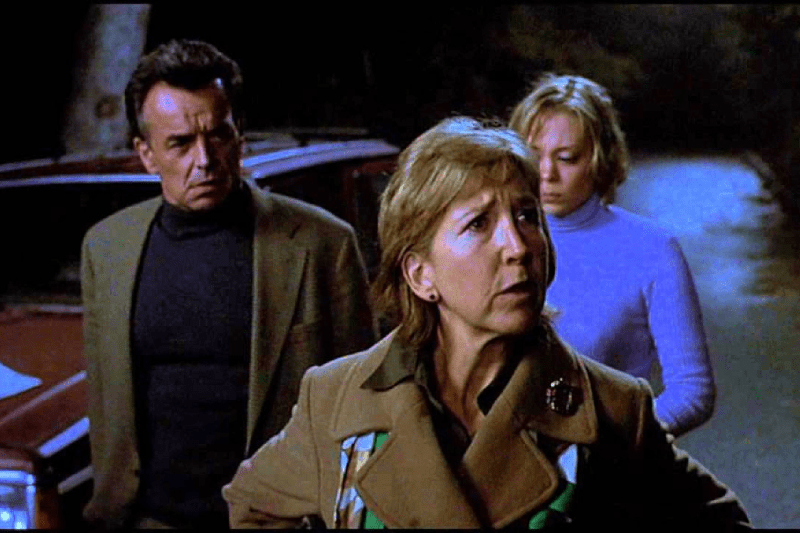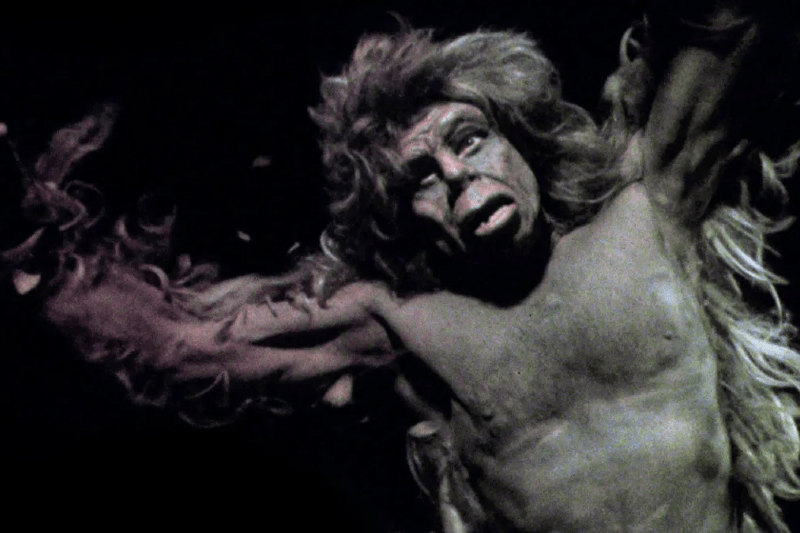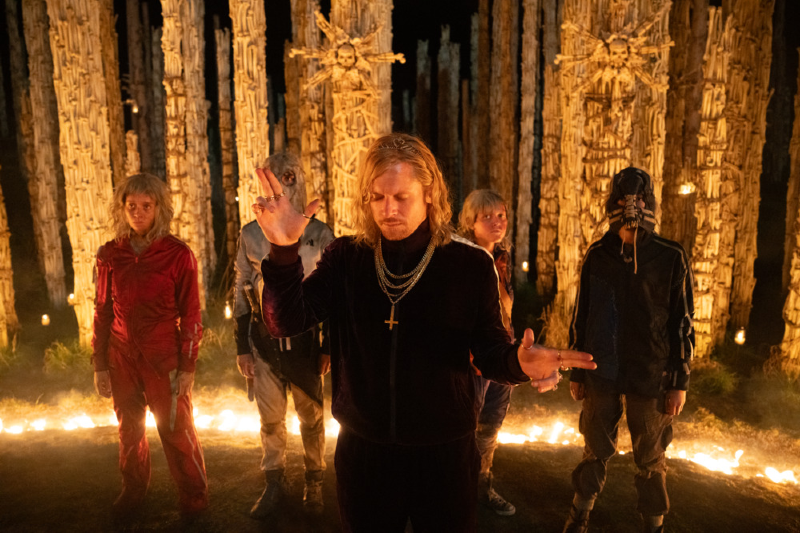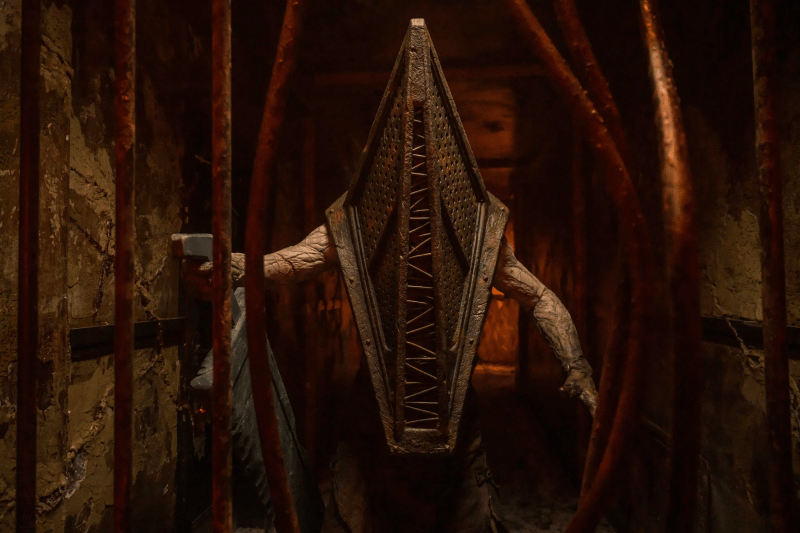Christmas is considered the happiest time of year for many. The year-end holiday has become synonymous with gift-giving, family reunions, and general comradery with loved ones. So synonymous that these traits have become commercialized and deeply embedded into what we know as Christmas culture. And no film better captures the absurdity of the Christmas image than Jean-Baptiste Andrea and Fabrice Canepa’s 2003 French horror-comedy, Dead End.
While most Christmas movies take place in the home, Dead End uses an ill-advised family road trip as the catalyst for a family’s inner destruction. The family in question are the Harringtons, driving to father Frank’s in-laws for Christmas. It’s a trip dad knows all too well, prompting him to try out a new route down a long and seemingly endless road.
Accompanying him are his wife Laura, stoner son Richard, quiet daughter Marion, and her boyfriend Brad. All is normal until Frank spots a hitchhiker by the side of the road, a mysterious woman in white holding a baby. Partially based on the story of the Vanishing Hitchhiker, Frank’s stop proves to be the beginning of a night of terrors for the family. And as they struggle, the road before them stretches far beyond what could ever be imagined.
But this Christmas cult classic stands out for its method in using a classic ghost story to reveal the insidious underbelly of the nuclear family. Right from the start, there is something off. Some tensions are obvious, such as Richard’s crude and immature behavior throughout the journey. Daughter Marion hardly says a word; Laura and Frank’s car squabbles have hints of venomous toxicity to them, and even Brad’s attempts to mediate the tension fall on deaf ears. Even before the hitchhiker makes her appearance, the Harringtons are a family on the cusp of implosion.
Once the supernatural aspect starts and the bodies start piling up, the façade of the Harringtons is stripped away, exposing the poisonous core of a broken family. Secrets come out, the true nature of their characters becomes transparent, and all on the eve of the most wonderful time of the year. One of the true highlights of Dead End is seeing the family fall victim to their own selfish whims. The ghostly beings are there as the icing on the cake, striking when the family is at its most vulnerable.
Oh, and the film happens to be laugh-out-loud funny. Dead End effortlessly codes from being a family comedy to a tragedy, sometimes within a single scene. The breakdown of Laura in particular relishes the jarring tonal shifts and creates an uncomfortable atmosphere that dares you to laugh at something deeply uncomfortable. It is one thing for a Christmas story to contain horror elements, which is nothing new in fiction. But Dead End outright laughs at the image of a nuclear family, becoming a corrupt parody of itself.
Dead End’s chaotic tone would not work nearly as well without the cast involved completely throwing themselves into the script. Ray Wise portrays Frank as a somber straight man teetering so meticulously on the edge. When Frank’s explanation for his detour is simply from the fact that he was “bored,” Wise sells the image of a man desperate for change. Wise’s Frank is melancholy with hints of a happier man shining through the cracks.
Horror legend Lin Shaye’s Laura is the polar opposite of Frank—jittery, upbeat, and willing to lead the charge for an awkward car rendition of “Jingle Bells.” Shaye plays the archetype of the worrying and protective mother well; she captures her character’s spiral with conviction, offering career-best work in an underseen role. Her comedic timing only adds to an already unforgettable performance.
Rounding out the cast is Alexandra Holden as the timid student shrink Marion, doing her best to keep her wits about her as the family continues its breakdown. Mick Cain as Richard is properly irritating—and oddly sympathetic—once the horror becomes apparent. Billy Asher as Brad is the rare break from the Harringtons’ quirky vibes, serving as the outsider of the family’s drama. All in all, the perfect cast for a horror-comedy about a family coming to terms with their own fractured dynamic.
There’s a chance that anybody who has or is planning on checking this out may see shades of their own respective family within the Harringtons. They are not bare-bones enough for us to project our whole lives onto, but the family trauma portrayed does well to hit home on a number of sensitive topics. The Harringtons exist in many more families than we’d be comfortable to believe. Our seemingly perfect neighbors, our more successful brother/sister’s own growing families, and so forth.
Dead End is a cynical examination of the nuclear family, but don’t let that stop you from enjoying this film as a darkly hilarious road trip. In essence, that is also its entire purpose. Taking the awful qualities of life and its fragile existence and having a nice laugh amidst the pain. Maybe it can be therapeutic in that regard? What is there to find in the core of Dead End? Everyone is different, so it’s hard to say. But I think it’ll be worth finding out for yourself if you’re ever perusing the land of Tubi someday.







